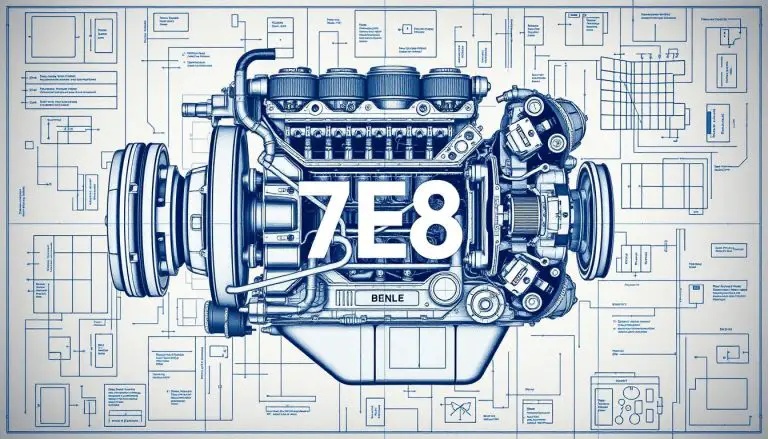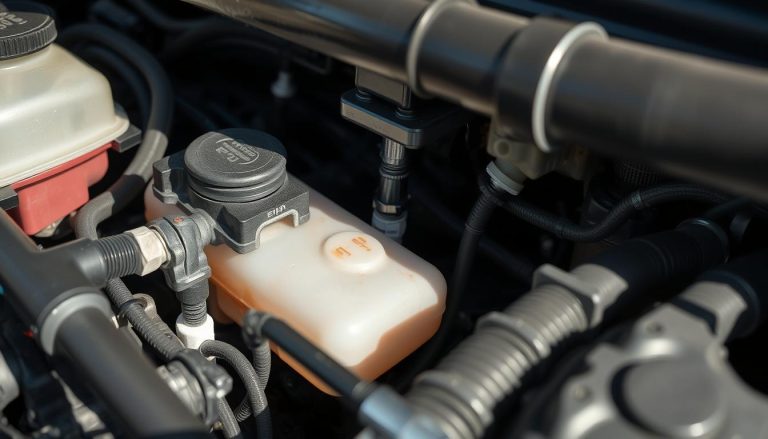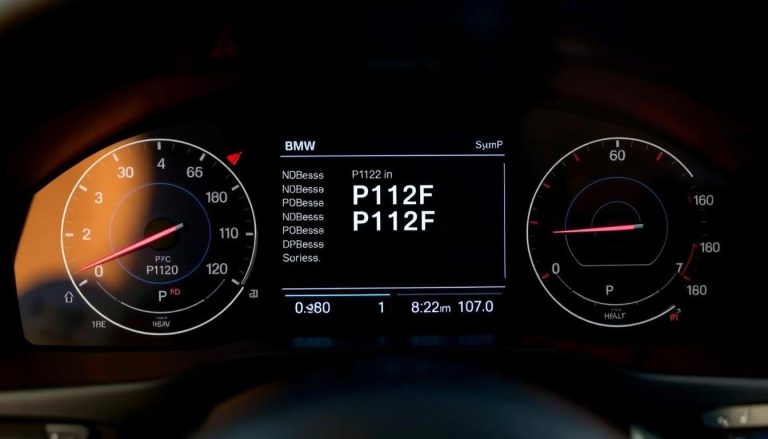If you’ve recently seen the P0740 code pop up, it’s time to pay attention. This particular code signals a problem with your torque converter clutch circuit, which plays a crucial role in your vehicle’s transmission system.
Ignoring this issue can lead to more serious complications down the line. So, what does this all mean for you? Let’s delve deep into understanding the P0740 code—from its causes and symptoms to diagnosis and repair solutions.
What does the P0740 code mean?
The P0740 code is an OBD-II trouble code indicating a malfunction in the torque converter clutch circuit. This system is essential for optimal engine performance and fuel efficiency.
When your vehicle’s onboard computer detects that the torque converter clutch isn’t operating as it should, it triggers this code. The torque converter clutch engages to lock up the engine and transmission, allowing for smoother acceleration and reduced RPMs at cruising speeds.
A locked-up torque converter improves fuel economy by minimizing slippage between the engine and transmission. If there’s a fault in this circuit, you may experience issues like rough transitions during gear changes or increased fuel consumption due to inefficiency.
Understanding what this code means can help you address potential problems promptly before they escalate into more significant concerns affecting your drive quality.
What parts can be affected by P0740 code ?
The P0740 code primarily points to issues within the torque converter clutch (TCC) circuit. This crucial component helps manage engine power and improves fuel efficiency by locking the torque converter in place during certain driving conditions.
When this code is triggered, several parts may be affected. The TCC solenoid, responsible for applying or releasing pressure to engage or disengage the clutch, can fail. If it malfunctions, you might experience slipping or poor acceleration.
Wiring and connectors related to the TCC circuit are also at risk. Damaged wires can lead to intermittent connections that affect performance.
Additionally, transmission fluid quality plays a vital role. Contaminated or low fluid levels can obstruct proper function of the torque converter and its associated components, leading to further complications down the line.
What are the common symptoms of a P0740 code?
When your vehicle triggers the P0740 code, several symptoms can indicate a problem. You might first notice unusual transmission behavior. This could manifest as slipping or hard shifting between gears.
Another common symptom is a decrease in fuel efficiency. If you’re burning more gas than usual, it may be linked to torque converter issues.
Pay attention to any warning lights on your dashboard; the check engine light often illuminates with this code. Sometimes, there are vibrations felt through the steering wheel during acceleration—a clear signal something is off.
Additionally, you might experience overheating of the transmission system due to improper fluid flow caused by torque converter malfunctioning. These signs should prompt immediate diagnostics and repairs for optimal vehicle performance.
What are the possible causes of a P0740 code?
The P0740 code can stem from various issues within your vehicle’s transmission system :
- S faulty torque converter clutch (TCC) solenoid, which plays a crucial role in regulating fluid flow and controlling the engagement of the torque converter.
- Culprit could be low transmission fluid levels or degraded fluid quality. Insufficient lubrication can lead to overheating, affecting performance and triggering error codes like P0740.
- Wiring problems are also significant contributors. Damaged wires or corroded connectors may disrupt electrical signals between components, causing malfunctioning circuits.
- A failing Transmission Control Module (TCM) might misinterpret data related to engine load and speed, leading to erratic behavior associated with the TCC circuit. These factors combined create a perfect storm for this code to appear on your dashboard.
What are the diagnostic steps for a P0740 code?
Diagnosing a P0740 code involves several systematic steps to pinpoint the issue accurately. Start by connecting an OBD-II scanner to retrieve the trouble codes stored in the vehicle’s computer.
Once you have the P0740 code, inspect for any other related codes as they can provide valuable context. Look at sensor readings and data streams to assess if there are any anomalies in transmission performance.
Next, visually examine wiring and connectors associated with the torque converter clutch circuit. Damaged wires or loose connections could be contributing factors.
Perform a road test under various conditions while monitoring live data. Pay attention to how the vehicle behaves during acceleration and deceleration phases.
If necessary, check fluid levels and quality; low or contaminated transmission fluid can lead to malfunctions. Document all findings thoroughly for further analysis before proceeding with repairs.
How serious Is the P0740 Code? Can I continue driving with the P0740 code?
The seriousness of the P0740 code should not be underestimated. When this code appears, it indicates a malfunction in the torque converter clutch circuit. This can lead to inefficient engine performance and decreased fuel economy.
Continuing to drive with a P0740 code may result in further damage to your vehicle’s transmission system. You might notice rough shifting or slipping gears as symptoms worsen over time. Ignoring these signs could escalate repair costs significantly.
While you might still operate your vehicle, it’s advisable to avoid long trips or heavy acceleration until the issue is diagnosed and resolved. Each day spent driving with this code can put additional strain on various components associated with the transmission system.
To ensure safety and maintain optimal performance, addressing a P0740 code promptly is essential for both peace of mind and longevity of your vehicle’s functionality.
What are the repair solutions for a P0740 – Torque Converter Clutch Circuit Malfunction ?
Repairing a P0740 code often involves several steps, depending on the underlying issue. First, technicians will typically inspect wiring and connectors related to the torque converter clutch circuit. Corrosion or damage can lead to malfunctions.
If electrical components are functioning properly, the next step may involve testing the torque converter itself. Sometimes, replacing this component is necessary if it’s not engaging properly.
Fluid levels also play a critical role in transmission performance. Flushing and replacing old transmission fluid can sometimes resolve issues related to shifting and engagement.
In cases where all else fails, reprogramming or replacing the vehicle’s powertrain control module (PCM) might be needed. Diagnosing these various elements ensures that repairs target the root cause rather than just addressing symptoms.
What other codes may be related to P0740?
When dealing with a P0740 code, it’s essential to consider other related trouble codes that may surface. These can offer clues about additional issues within your vehicle’s transmission system.
Codes like P0700 indicate a general transmission fault, signaling that there’s an issue requiring further investigation. Other relevant codes include P0741 and P0742, which pertain specifically to torque converter performance problems.
You might also encounter P0750 through P0770, which relate to solenoid malfunctions or circuit issues within the transmission. Each of these codes could provide insight into what’s affecting your vehicle’s torque converter clutch operation.
Always check for multiple codes during diagnostics. This approach helps pinpoint whether the problem is isolated or part of a broader set of complications in the drivetrain system.
How much does it cost to diagnose and repair a P0740 code?
When dealing with a P0740 code, the costs can vary widely based on several factors. Diagnostic fees typically range from $75 to $150 at most repair shops. This initial evaluation helps pinpoint whether the issue lies within electrical components or mechanical parts.
If repairs are necessary, expenses increase significantly. Simple fixes like replacing a faulty sensor could cost anywhere from $200 to $400. More complex issues involving transmission work may escalate costs into the thousands.
Don’t forget about labor charges as well; they usually add another layer of expense depending on your location and shop rates. It’s wise to get multiple quotes before committing to any repairs, ensuring you’re informed about your options and potential financial impact.
How long does it take to diagnose and repair code P0740?
The time required to diagnose and repair the P0740 code can vary significantly. It largely depends on the complexity of the vehicle’s transmission system and the experience level of the mechanic.
Typically, diagnosis might take anywhere from one to three hours. Technicians will perform a series of tests, including checking wiring, connectors, and sensors associated with the torque converter clutch circuit.
Once diagnosed, repairs could range from simple fixes like replacing a faulty sensor or connector to more extensive work involving transmission servicing. Repair times can extend from an hour for minor issues to several days if major components need replacement or rebuilding.
Your specific situation may also influence timelines. Factors such as parts availability and shop workload play crucial roles in determining how quickly your vehicle is back on the road.
What happens if you ignore a P0740 code?
Ignoring a P0740 code can lead to significant problems down the road. The torque converter clutch plays an essential role in your vehicle’s performance and fuel efficiency. When this system isn’t functioning correctly, you may experience various issues like reduced power, poor acceleration, or even stalling.
Over time, continued neglect could result in further damage to the transmission or associated components. This not only increases repair costs but also affects overall driving safety. Additionally, if your vehicle is equipped with advanced onboard diagnostics, failing to address the P0740 code might trigger additional warning lights on your dashboard.
It’s crucial to take any trouble codes seriously. A proactive approach will save you both time and money while ensuring that your vehicle remains safe and reliable for daily use. Addressing a P0740 code promptly allows for smoother operation and helps maintain optimal performance levels across all driving conditions.


